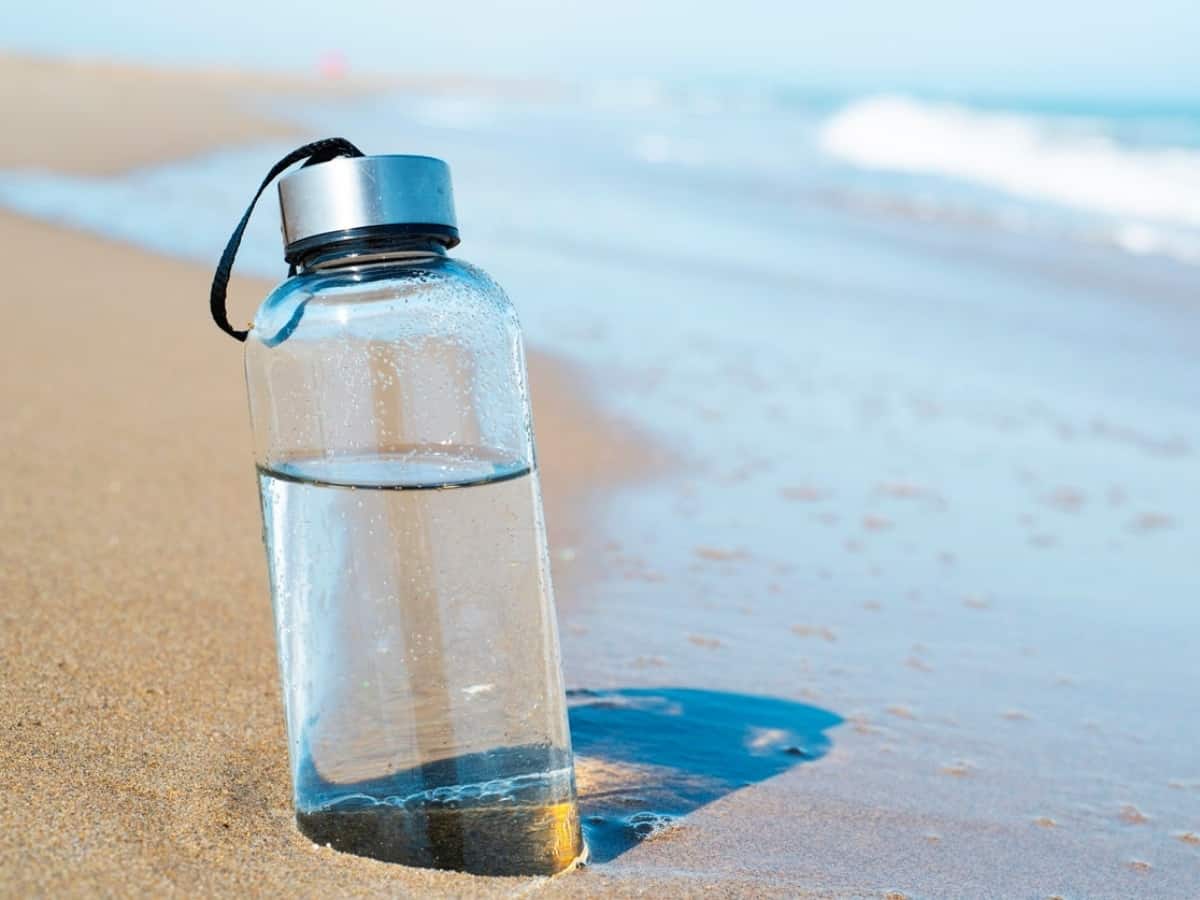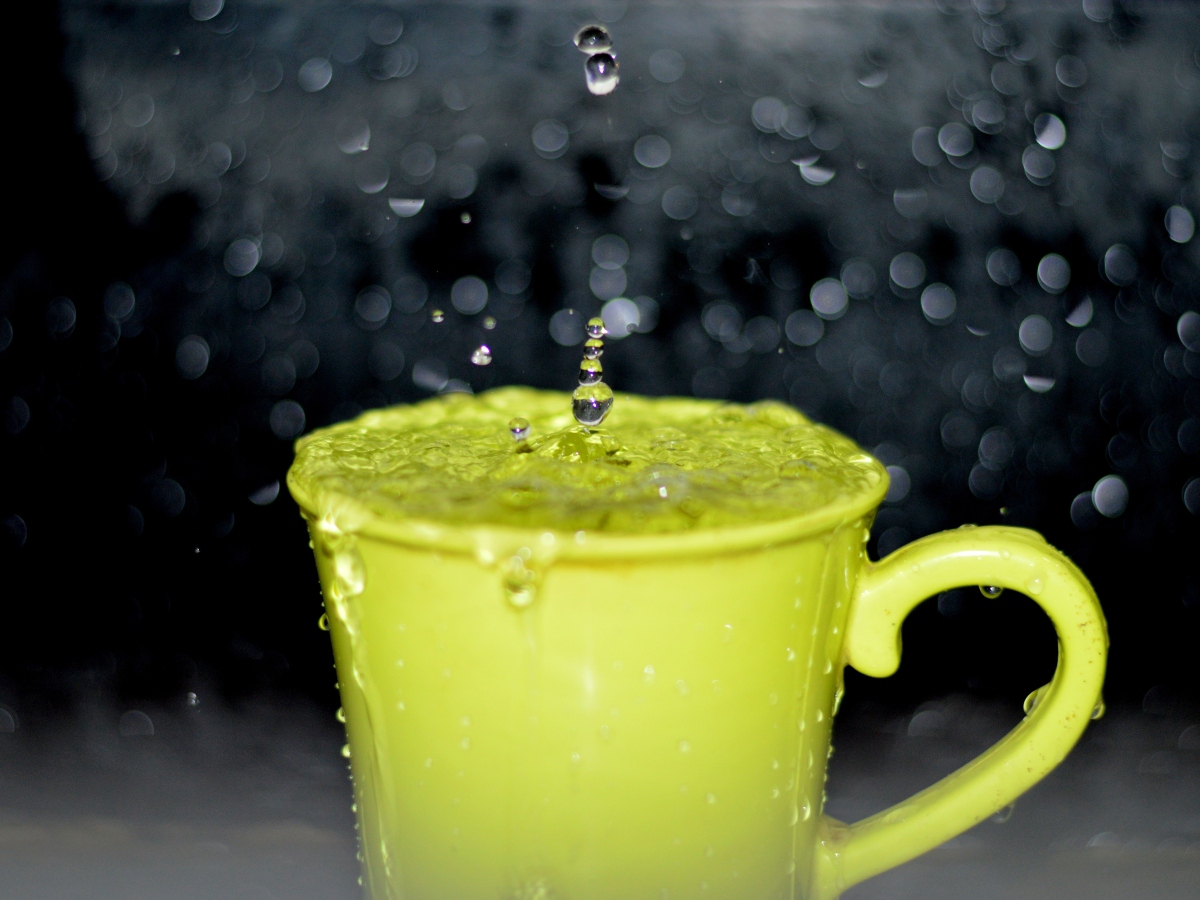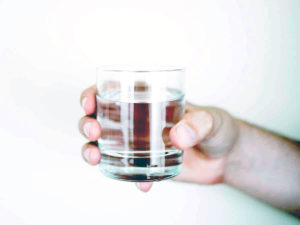Distilled water is the preferred choice of laboratories and pharmacies because of its high purity levels. Distilled water is 99% free from chemicals, dissolved organics, and bacteria. As a water treatment process, distillation is one of the most natural ways of purifying water. So, is distilled water safe to drink? Read on to find out!
Is Distilled Water Safe to Drink?
Yes, distilled water is safe for drinking but may have a flat taste and may not entirely be sufficient for the body.
The reason for this argument is that minerals such as calcium, magnesium, and sodium, as well as PH levels that give water its taste and are crucial for our body development and functionality, are removed together with other harmful contaminants during the distillation process. Either way, distilled water is safer for drinking than tap water that may contain harmful pollutants and chemicals used in the treatment process.
Try to drink other types of water or foods with high mineral contents to supplement the minerals absent in distilled water. Babies, athletes, malnourished, or sick people should not take distilled water because they are at a high risk of losing electrolytes rapidly, which may cause complications. To stay hydrated, they need to take in water with minerals.
So What is Healthy Water?
You may be wondering about the fuss over healthy water! Given that we live in an advanced and modernized society, you might not fully understand some contaminants in your tap water. So what is the healthiest water to drink, and is distilled water safe to drink?
Experts generally agree with the recommended healthy types of water to drink. The more beneficial water types include distilled water, reverse osmosis, spring water, bottled water, alkaline, hydrogen water, and artesian water. Each water type has its benefits that contribute to our overall health. There are pros to each, which outweigh the cons.
Distilled Water Explained
Distilled water is water without impurities, primarily found in tap and groundwater. Impurities in water exist in the form of contaminants, minerals, inorganic compounds, and nutrients, some of which are very harmful to the body.
According to the EWG’s tap drinking water quality report provided by the Environmental Working Group, the contaminants detected in Los Angeles tap water:
- Arsenic (linked to several cancers including liver, bladder, kidney, skin, and prostate)
- Bromate (linked to gastrointestinal issues, nervous system issues, kidney issues, and hearing loss)
- Chromium (linked to kidney damage, respiratory issues, and dermatitis)
- Nitrate (linked to serious illness or even death in children under six months old)
- Uranium (linked to increased risk of cancer and kidney toxicity)
For quite a long time, homes have relied on tap water as the primary source of drinking water. But, there is a realization that tap water has harmful contaminants and inorganic agents. For this reason, most health officials have advised homeowners to purify water before drinking.
Initially, people opted to purify their water by boiling it to kill pathogens and then filtered out the sediments. But there was still a need to purify water and get rid of the chemical elements entirely. It is through this concept that distillation was born.
Water Distillation: The Process
Distillation is an old-school way of water purification. However, it is a relatively tricky and complicated process at home without a proper working distillation machine. A water distiller is the best method of removing substances from water.
A water distiller converts tap water into steam and leaves no minerals, bacteria, and contaminants behind. After the hot, humid steam cools, it condenses back into liquid. Distillation is similar to the natural method of recycling water, known as the hydrologic cycle. This process is doable at home, with a home distiller, evaporation chamber, and steam collection unit.
Distillation is most effective in removing inorganic matter such as metals like lead and iron from a contaminated water supply. The distillation method varies based on the chemical characteristics of the organic compound solubility and boiling point.
That is why it is essential to seek professional help to analyze your water. This should be the first step toward solving water quality problems. A thorough water analysis will pinpoint the water issues that will determine the best solution to water treatment.

Is Distilled Water Purified Water?
Yes, distilled water is purified water. The term “purify” means “to remove impurities,” and distillation does exactly this. It is important to note that distilled water has no mineral components; thus, the name is deionized or demineralized water. There is nothing wrong with this; it just means that distilled water has no bacteria, minerals, contaminants, or nutrients.
However, the name “purified water” does not mean distilled water as there are other forms of water purification. In fact, purified water can mean water with a low level of impurities that are not significantly harmful. Such water is still safe for drinking considering the impurities are not disease-causing microorganisms. Reverse osmosis is another technique used to purify water. However, if you are looking for water in its purest form, choose distillation! The distillation process evaporates water, and the steam is condensed to gain pure water. This process removes all dirt, chemicals, and inorganic matter from water.
Individuals can take distilled water for a few months to eliminate toxic substances and heavy metals from their bodies. Distilled water is excellent for a short detox. Compared to purified water, distilled water is suitable for people who want entirely pure water.
Pros and Cons of Drinking Distilled Water
In order to understand the advantages and disadvantages of drinking distilled water, it’s essential to consider the interaction between distilled water and the body, as well as understand where the human body acquires vital minerals and how it utilizes them.
Pros of Drinking Distilled Water
- It helps prevent water-related diseases. Tap water is full of parasites, microorganisms that can cause severe body diseases. Drinking tap water will cause issues with your immunity. The best way to keep the contaminants away is to distill water.
- It is a natural purifying method. The distillation process uses a similar method as the water cycle method for carrying and reusing water on mother earth! Distillation heats up water and converts it to vapor, which removes all chemicals and minerals. The vapor then cools off back to a liquid form.
- It removes all contaminants safely. Fluoride is a mineral used to treat most tap water used in homes. Too much fluoride in water can damage your body when consumed through water. Distillation will help remove these heavy chemicals in your drinking water.
- Essential minerals come from food. Yes, you read that right! Your body gets most of its required nutrients from food and not water! You can stay away from the contaminants in tap water as you enjoy your glass of distilled water and a well-balanced plate of food.
Cons to Distilled Water
- It has no taste. Distillation removes minerals and nutrients from water that give it taste.
- It can cause body acidity. During water distillation, carbon dioxide interacts with the steaming water, raising the water’s acidity. Acidic water is not suitable for your gut or long-term health!
- Lack of minerals and nutrients. If you drink distilled water consistently, you are at high risk of developing complications with your body. Your body’s immunity compromised will make you prone to being ill often.

Safe and Healthy Water at Home?
Contaminants and chemical substances can get into the water. They can get in through pipes on the way to your home or even from the source. Inorganic minerals are generally harmless, but heavy metals and contaminants are a significant concern here. So, if you’re among those asking themselves the question, “is distilled water safe to drink?” here is what you need to know.
Distilled water is one of the surest methods of drinking safe water because other water systems can fail or get compromised somehow.
Distillation removes substances dissolved in water, good and bad, converting the water into its purest form. In essence, distillation removes dissolved solids in water resulting in water that is safe to drink.
But how do you get safe water running from your taps at home?
If you need all the water in your house to be safe all the time, water filtration or distillation system is well worth your hard-earned bucks! It not only cuts down the cost of buying bottled water but gives you peace of mind that your loved ones are consuming safe water right out of the tap.

Call ONIT Home For Your Cleanest Water Options
You can effectively fight against harmful contaminants with a complimentary water test through ONIT Home. Our thorough testing tells you what’s in your water and sets you up with the best in home water filtration system. We recognize the importance of clean water for our health, so we’ll work with you to test your water and design a system that’s right for your house, ensuring you get water in its purest form! To find out how to get your free water test scheduled today, visit us online or give us a call at 1-833-433-0331.



